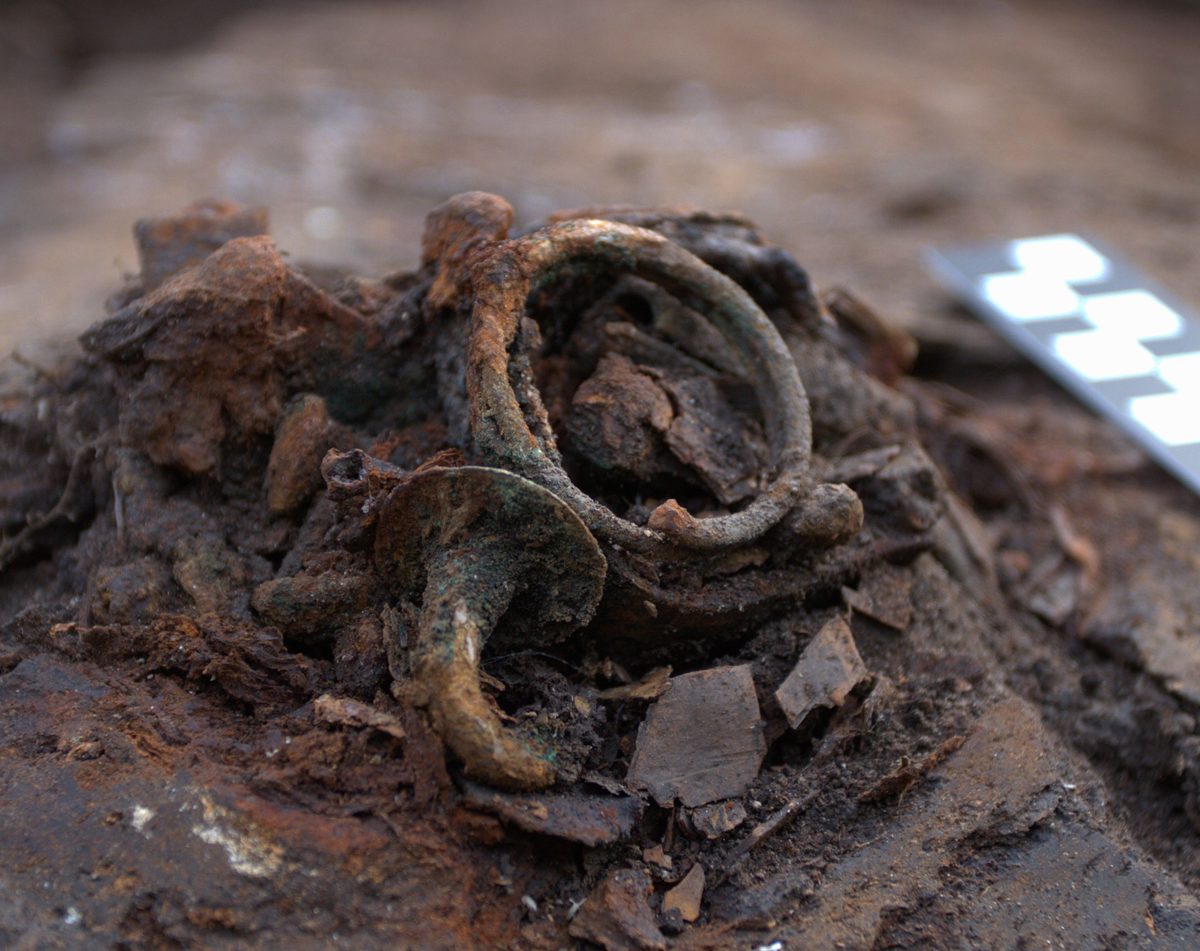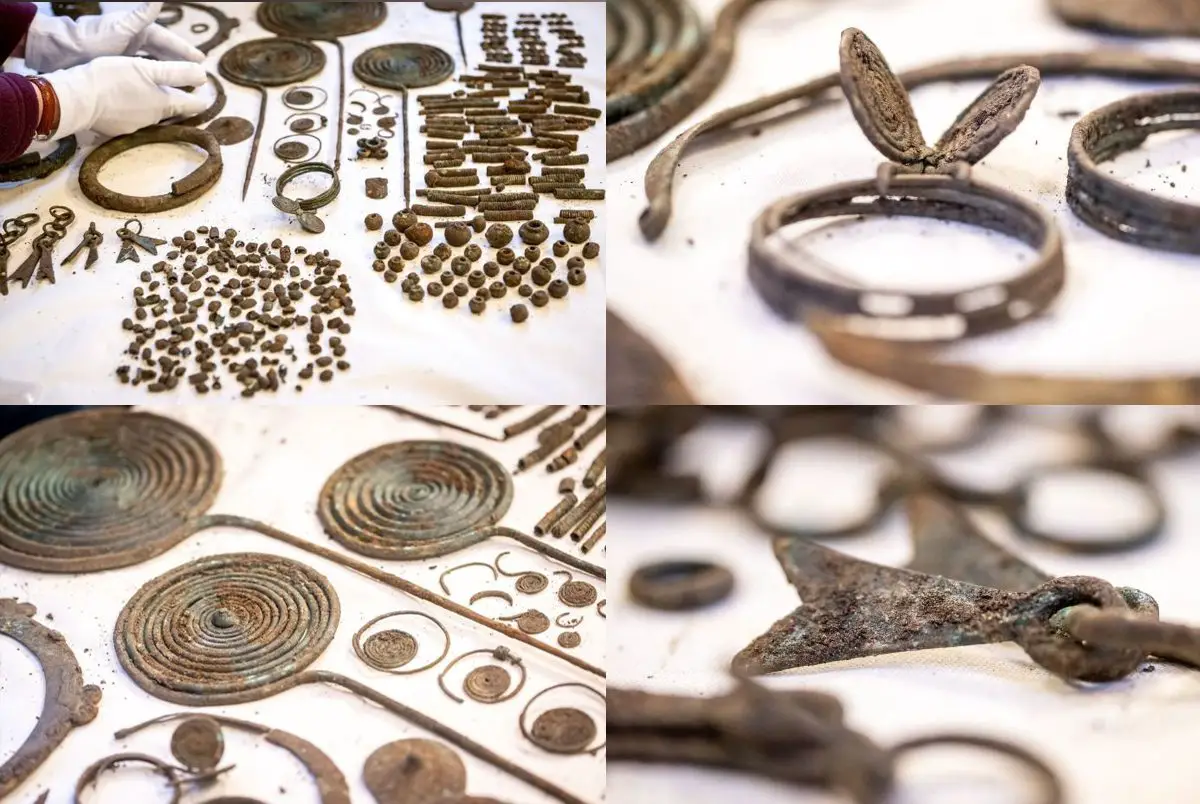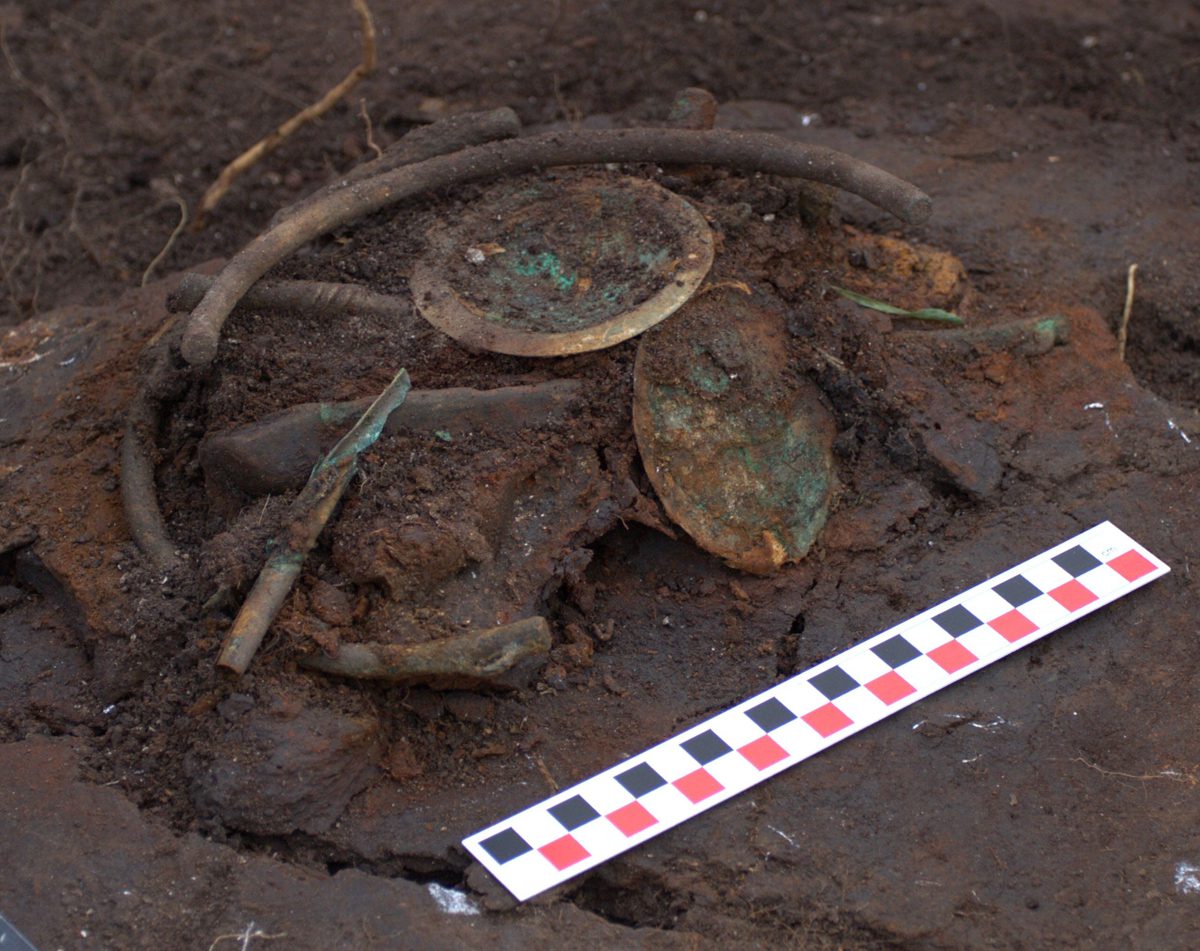Archaeologists excavating at Chelmo in northern Poland, have found bronze treasures among sacrificial deposits that date from 2500-years-ago.
The exact location of the site is being kept confidential to protect any further remains from looting, however, it has been revealed that during the 6th century BC, the site was at an ancient lake, which over the centuries has since drained and converted into a peat bog.
The discovery was made by a local metal detecting group, who notified authorities after becoming aware of the importance of their finds.

Excavations were initiated by the Provincial Office for the Protection of Monuments, and conducted by archaeologists from the Nicolaus Copernicus University in Toruń.

The team found dozens of bronze artefacts which were displaced through agricultural ploughing, and three deliberate deposits of bronze items, likely placed as an offering or for ceremonial purposes.
Archaeologists uncovered bronze necklaces, bracelets, greaves, and decorative pins with spiral heads, in addition to organic remains such as fragments of rope, antler tools, and over 100 human bone fragments spread across the ploughed surface.
The team suggests that the human remains may have been from sacrificial rituals, conducted during a period of unrest when the region saw groups of nomads coming from the Pontic Steppe.

The deposits date from 2500-years-ago during Poland’s early Iron Age, and have been attributed to the Lusatian culture, a people who existed in the later Bronze Age and early Iron Age. The Lusatian culture spread across most of what is now Poland, and parts of the Czech Republic, Slovakia, eastern Germany and western Ukraine.
According to the researchers, Lusatian burials practices mainly involved cremations, with inhumations being very rare. The discovery at the Chelmo site is the first known example in Poland to contain human remains buried alongside sacrificial deposits.
Src: heritagedaily.com








